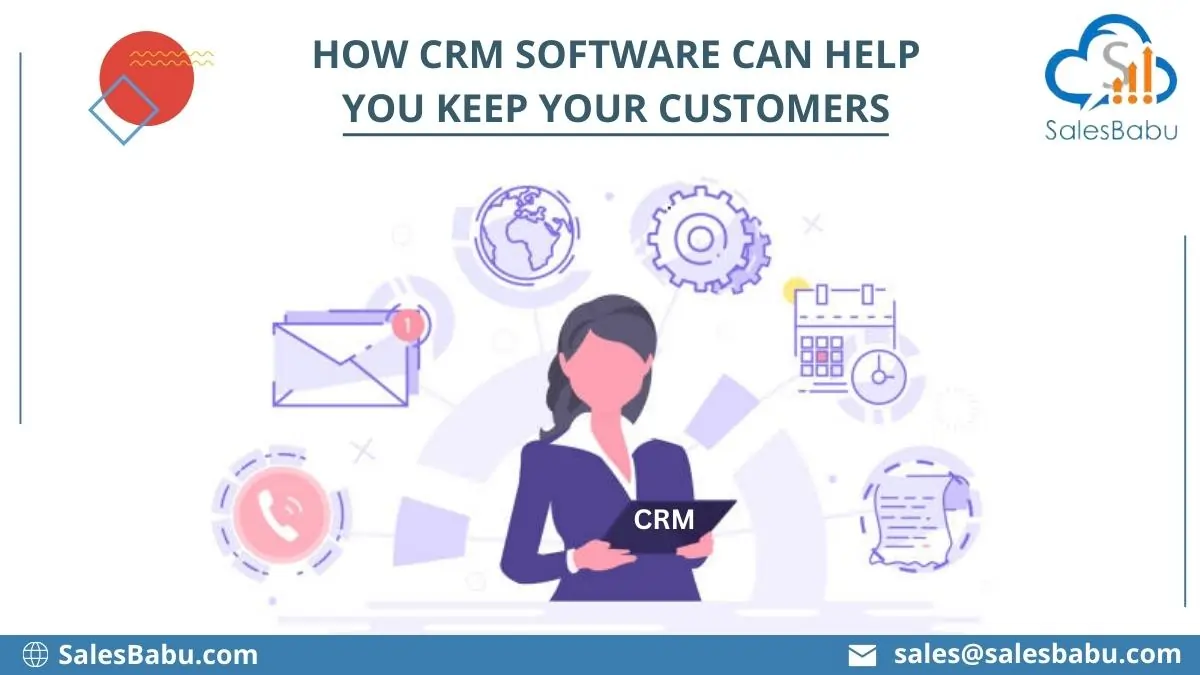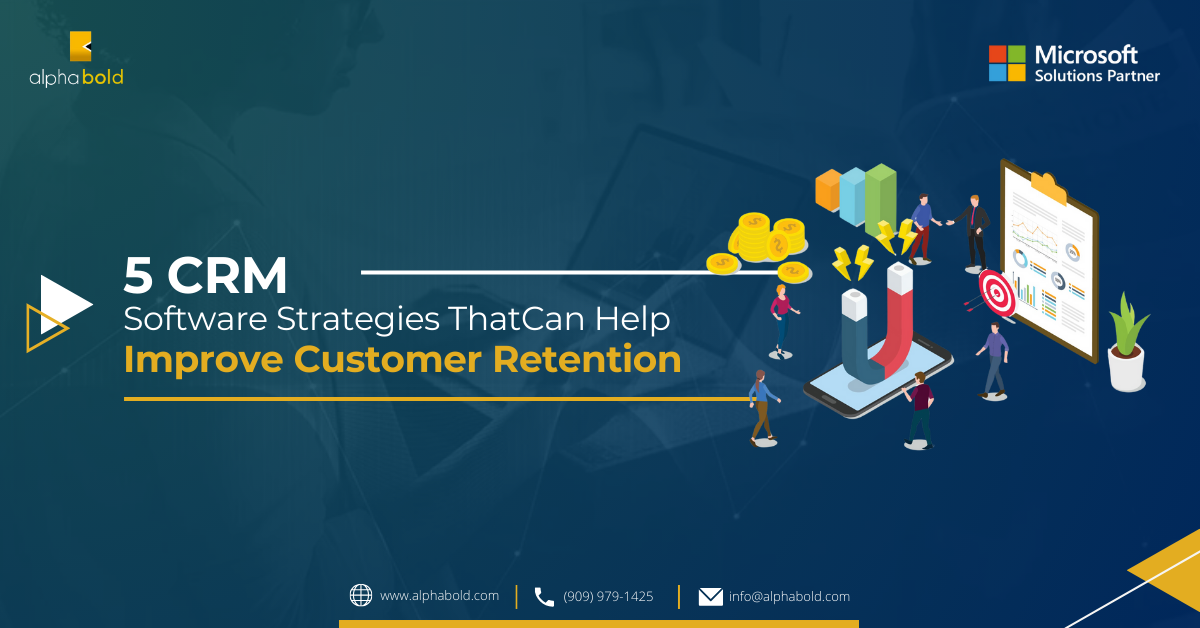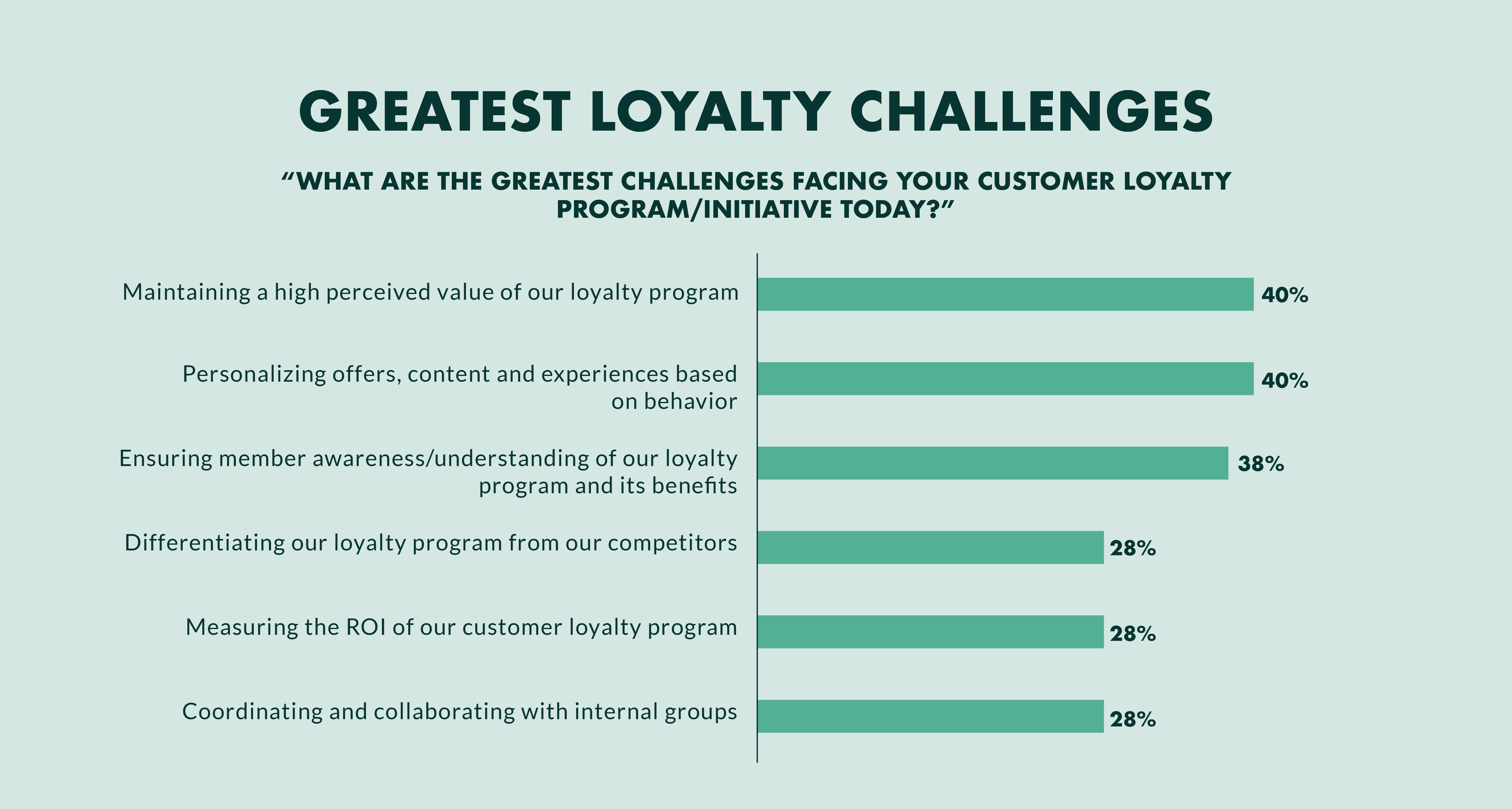CRM software helps improve customer retention by organizing and managing customer interactions. It enhances communication, personalizes services, and tracks customer behavior.
Customer retention is vital for any business. Keeping existing customers is often more cost-effective than acquiring new ones. This is where CRM software comes in. It centralizes data, making it easy to access customer information and history. This allows businesses to provide personalized experiences and timely support.
With features like automated follow-ups and targeted marketing, CRM software helps build strong relationships. As a result, customers feel valued and are more likely to stay loyal. In this blog, we’ll explore the specific ways CRM software can boost your customer retention rates.
Introduction To Crm Software
In today’s competitive market, businesses are always looking for ways to enhance their customer relationships. Enter CRM software, a powerful tool that can transform how you interact with your customers. But what exactly is CRM software, and how can it help you retain your customers? Let’s dive into the basics.
What Is Crm?
CRM stands for Customer Relationship Management. It is a technology used by businesses to manage their interactions with customers and potential customers. CRM software helps companies stay connected to their customers, streamline processes, and improve profitability. Imagine having all your customer data, communication history, and sales information in one place – that’s what a CRM system provides. It’s like having a super-organized digital assistant for your business!
Importance Of Customer Retention
Why is customer retention such a big deal? Well, keeping your existing customers happy and loyal is often more cost-effective than acquiring new ones. Satisfied customers are more likely to make repeat purchases, recommend your business to others, and provide valuable feedback. Here are some key reasons why customer retention is crucial:
- Cost Efficiency: It costs less to retain existing customers than to attract new ones.
- Increased Revenue: Loyal customers are more likely to buy again and spend more.
- Word of Mouth: Happy customers can become brand advocates, spreading positive word of mouth.
- Feedback Loop: Existing customers can provide insights to improve your products and services.
Think of customer retention as a long-term investment. By focusing on keeping your current customers engaged and satisfied, you can build a solid foundation for sustained growth. And guess what? CRM software is your secret weapon in achieving this goal!

Credit: www.salesbabu.com
Centralized Customer Data
Imagine trying to juggle multiple balls at once. It’s tough, right? Now, think of managing customer information spread across different platforms. It’s a disaster waiting to happen! This is where CRM (Customer Relationship Management) software steps in as your trusty assistant, helping you keep all customer data in one central place. With centralized customer data, you can see everything about your customers in one glance, making it easier to keep them happy and loyal. But how exactly does this work? Let’s break it down.
Unified Customer Profiles
At the heart of CRM software is the creation of unified customer profiles. These profiles consolidate all the information about a customer into a single, comprehensive view. Think of it as having a complete dossier on each customer, containing their contact information, past interactions, purchase history, preferences, and even social media interactions.
With this unified profile, your team can easily access and update customer details without the hassle of jumping between different systems. Imagine the efficiency! You no longer have to dig through emails, spreadsheets, or notes to find relevant information. Everything you need is right there, neatly organized and ready to use.
For example, if a customer calls with a query, you can quickly pull up their profile and provide personalized assistance. This not only saves time but also enhances the customer experience, making them feel valued and understood.
Access To Customer History
Another significant advantage of centralized customer data is the access to customer history. Every interaction a customer has had with your business is recorded and stored in the CRM system. This historical data is a goldmine for understanding customer behavior and preferences.
For instance, by reviewing past purchases, you can identify patterns and trends that can inform your marketing strategies. You can also anticipate customer needs and proactively reach out with relevant offers or recommendations. It’s like having a crystal ball that helps you predict what your customers want before they even ask!
Moreover, access to customer history enables your team to provide consistent and informed support. If a customer contacts you with an issue they’ve experienced before, your team can quickly reference past interactions and resolve the problem more efficiently. This continuity in service builds trust and fosters long-term loyalty.
In conclusion, centralized customer data through CRM software is a game-changer for improving customer retention. By providing unified customer profiles and access to detailed customer history, CRM systems empower your team to deliver personalized and efficient service. This not only keeps customers happy but also encourages them to stay with your business for the long haul. So, are you ready to take your customer relationships to the next level?
Personalized Customer Interactions
CRM software plays a crucial role in enhancing customer interactions. It collects and analyzes customer data, allowing businesses to tailor their approach. Personalized interactions make customers feel valued and understood. This leads to increased satisfaction and loyalty.
Tailored Communication
CRM software enables businesses to tailor their communication. By analyzing customer data, companies can understand preferences and behaviors. This allows for sending personalized messages that resonate with customers. It could be a birthday greeting or a special offer. Personalized communication helps build stronger relationships.
Targeted Marketing Campaigns
Targeted marketing campaigns are more effective with CRM software. It segments customers based on their interests and behaviors. This allows businesses to create specific campaigns for each segment. Customers receive relevant offers and information. This increases the chances of engagement and conversion.
Enhanced Customer Support
Enhanced customer support is vital for businesses aiming to retain customers. CRM software plays a crucial role in improving customer support. By using CRM, companies can manage customer interactions more efficiently. This leads to higher customer satisfaction and loyalty.
Efficient Ticket Management
CRM software helps in organizing and managing customer tickets. Each ticket gets tracked from start to finish. This ensures no issues are overlooked. Agents can prioritize tickets based on urgency. This improves response times and resolves issues faster. Customers appreciate quick and effective support.
Automated Responses
Automated responses are another benefit of CRM software. These responses acknowledge customer queries immediately. This assures customers that their issues are being addressed. Automated messages can also provide basic solutions. This reduces the workload on support agents. It also helps in resolving common issues quickly.
Customer Feedback Management
Customer Feedback Management is a crucial part of CRM software. It helps businesses understand what their customers think and feel. By collecting and analyzing feedback, companies can improve customer satisfaction and retention.
Collecting Feedback
CRM software simplifies the process of collecting customer feedback. It can send automated surveys after a purchase or interaction. These surveys help gather immediate responses from customers. CRM tools also track feedback from various channels. This includes social media, emails, and direct messages. All this information is stored in one place, making it easy to access and review.
Analyzing Customer Insights
CRM software doesn’t just collect feedback; it analyzes it too. It helps identify common themes and trends in customer opinions. This analysis provides valuable insights into customer needs and preferences. Businesses can then make informed decisions to improve their products and services. The result is a better customer experience and higher retention rates.

Credit: www.alphabold.com
Loyalty Programs And Rewards
Customer Relationship Management (CRM) software is a powerful tool. It helps businesses retain customers. One effective way it does this is through loyalty programs and rewards. These programs encourage repeat business. They make customers feel valued and appreciated. CRM software makes creating and tracking these programs easier.
Creating Loyalty Programs
CRM software simplifies the creation of loyalty programs. It allows businesses to design custom programs. These programs can be tailored to meet specific customer needs. For example, businesses can offer points for every purchase. Customers can then redeem these points for rewards. This encourages customers to keep coming back.
Additionally, CRM software helps track customer interactions. This data can be used to personalize loyalty programs. Personalized programs are more effective. They make customers feel special. They are more likely to stay loyal to a brand that recognizes their preferences.
Tracking Rewards
Tracking rewards is crucial for the success of loyalty programs. CRM software excels in this area. It keeps track of points earned and rewards redeemed. This ensures customers receive their rewards promptly. Timely rewards boost customer satisfaction.
Moreover, CRM software can send automated reminders. These reminders inform customers about their points balance. They also notify customers when they are close to earning a reward. This encourages more engagement with the loyalty program.
In summary, loyalty programs and rewards are essential for customer retention. CRM software makes creating and tracking these programs easy. This leads to happier, more loyal customers.
Sales And Marketing Alignment
Sales and marketing teams often work in silos. This can lead to misunderstandings and missed opportunities. CRM software bridges this gap. It allows both teams to work together effectively. Aligning sales and marketing efforts is crucial for customer retention.
Synchronizing Efforts
A CRM system helps synchronize efforts between sales and marketing teams. Shared data ensures both teams have access to the same information. This prevents miscommunication and keeps everyone on the same page.
Marketing can see what leads are turning into sales. Sales can see what campaigns are generating quality leads. This way, both teams can adjust their strategies for better results.
Improving Lead Conversion
CRM software tracks every interaction with a lead. This helps in understanding customer behavior and preferences. Marketing can tailor campaigns based on this data. Sales can approach leads with better insights.
This targeted approach increases the chances of conversion. When sales and marketing work together, they can convert more leads into loyal customers. This leads to improved customer retention.

Credit: velaro.com
Reporting And Analytics
Customer Relationship Management (CRM) software is a game-changer when it comes to improving customer retention. One of the key features that make it so powerful is its reporting and analytics capabilities. By leveraging these tools, businesses can gain deep insights into their customer interactions, preferences, and behaviors. But what exactly makes reporting and analytics so vital? Let’s dive into two crucial aspects: Performance Metrics and Identifying Trends.
Performance Metrics
Tracking performance metrics is like having a roadmap for your business. CRM software provides detailed reports on various performance indicators such as customer satisfaction, response times, and sales growth. These metrics allow businesses to:
- Evaluate Customer Interactions: Understand how effectively your team is engaging with customers.
- Monitor Sales Funnels: Identify which stages of your sales process are working and which need improvement.
- Optimize Marketing Strategies: Assess the success of different campaigns and adjust tactics accordingly.
For instance, imagine your sales team is struggling to close deals. By analyzing performance metrics, you can pinpoint where the bottleneck is – whether it’s the initial contact, follow-up, or final negotiation. This targeted approach helps in taking corrective actions promptly, improving overall efficiency and customer satisfaction.
Identifying Trends
Ever wonder why some customers stick around while others disappear? Identifying trends through CRM analytics can provide those answers. By examining patterns in customer behavior, businesses can:
- Predict Future Needs: Anticipate what products or services customers might need next.
- Tailor Offers: Create personalized offers that resonate with specific customer segments.
- Enhance Customer Experience: Modify your approach based on customer preferences and feedback.
For example, if you notice a trend where customers tend to leave after a certain period, you can investigate further. Maybe it’s due to a common issue or a lack of follow-up. Addressing these trends proactively can significantly boost customer retention.
In summary, CRM software’s reporting and analytics tools are indispensable for any business aiming to enhance customer retention. By closely monitoring performance metrics and identifying trends, you can make informed decisions that keep your customers happy and loyal. After all, understanding your customers is the first step towards building lasting relationships.
Future Of Crm Software
Customer Relationship Management (CRM) software has drastically transformed the way businesses interact with customers. As we look ahead, the future of CRM software promises even more exciting developments. With rapid technological advancements and changing customer expectations, CRM tools are evolving to provide more personalized and efficient services. So, what does the future hold for CRM software? Let’s dive into some innovative features and how they align with evolving customer expectations.
Innovative Features
In the near future, CRM software will likely come equipped with a range of innovative features designed to enhance user experience and streamline operations. Here are a few exciting developments:
- Artificial Intelligence (AI) Integration: AI can analyze customer data to predict behaviors and preferences, enabling more targeted marketing strategies.
- Enhanced Automation: Automating routine tasks such as data entry and follow-ups can save time and reduce human error.
- Improved Analytics: Advanced analytics tools will provide deeper insights into customer interactions and help businesses make informed decisions.
- Mobile Accessibility: With more people working remotely, mobile-friendly CRM solutions will become essential.
Evolving Customer Expectations
As customers become more tech-savvy, their expectations from businesses are also changing. Here’s how CRM software is keeping up:
- Personalization: Customers expect personalized experiences. CRM systems can store detailed customer information, allowing businesses to tailor their services to individual needs.
- Real-Time Support: Instant gratification is the norm. Modern CRM tools offer features like live chat and chatbots to provide immediate assistance.
- Omni-Channel Communication: Customers interact through various channels – social media, email, phone, etc. CRM software integrates these channels, ensuring seamless communication.
- Data Security: With increasing concerns over privacy, robust data protection measures in CRM systems are becoming crucial.
To sum up, the future of CRM software looks promising, with a focus on innovative features and meeting evolving customer expectations. Businesses that adapt to these changes will undoubtedly see improved customer retention and loyalty. So, are you ready to embrace the future of CRM?
Frequently Asked Questions
How Can Crm Improve Customer Retention?
CRM improves customer retention by streamlining communication, personalizing interactions, and providing insights into customer behavior. It helps build stronger relationships and increases loyalty.
How Does Crm Affect Customer Loyalty And Retention?
CRM improves customer loyalty and retention by personalizing interactions, tracking preferences, and resolving issues promptly.
How Does Crm Help To Increase Customer Satisfaction?
CRM helps increase customer satisfaction by streamlining communication, personalizing interactions, and efficiently resolving issues. It provides valuable insights into customer preferences, improving service quality.
What Is One Benefit Of Using Crm Software For Customer Service?
CRM software enhances customer service by providing quick access to customer information, enabling personalized and efficient support.
Conclusion
CRM software plays a vital role in boosting customer retention. It helps businesses track interactions, understand needs, and provide personalized service. This creates stronger connections with customers. Happy customers are more likely to stay loyal. They also refer friends and family.
Consistent engagement leads to trust. Trust leads to long-term relationships. Investing in CRM software pays off. It enhances customer satisfaction and loyalty. Consider integrating CRM tools into your strategy. This will improve retention rates and business success.

